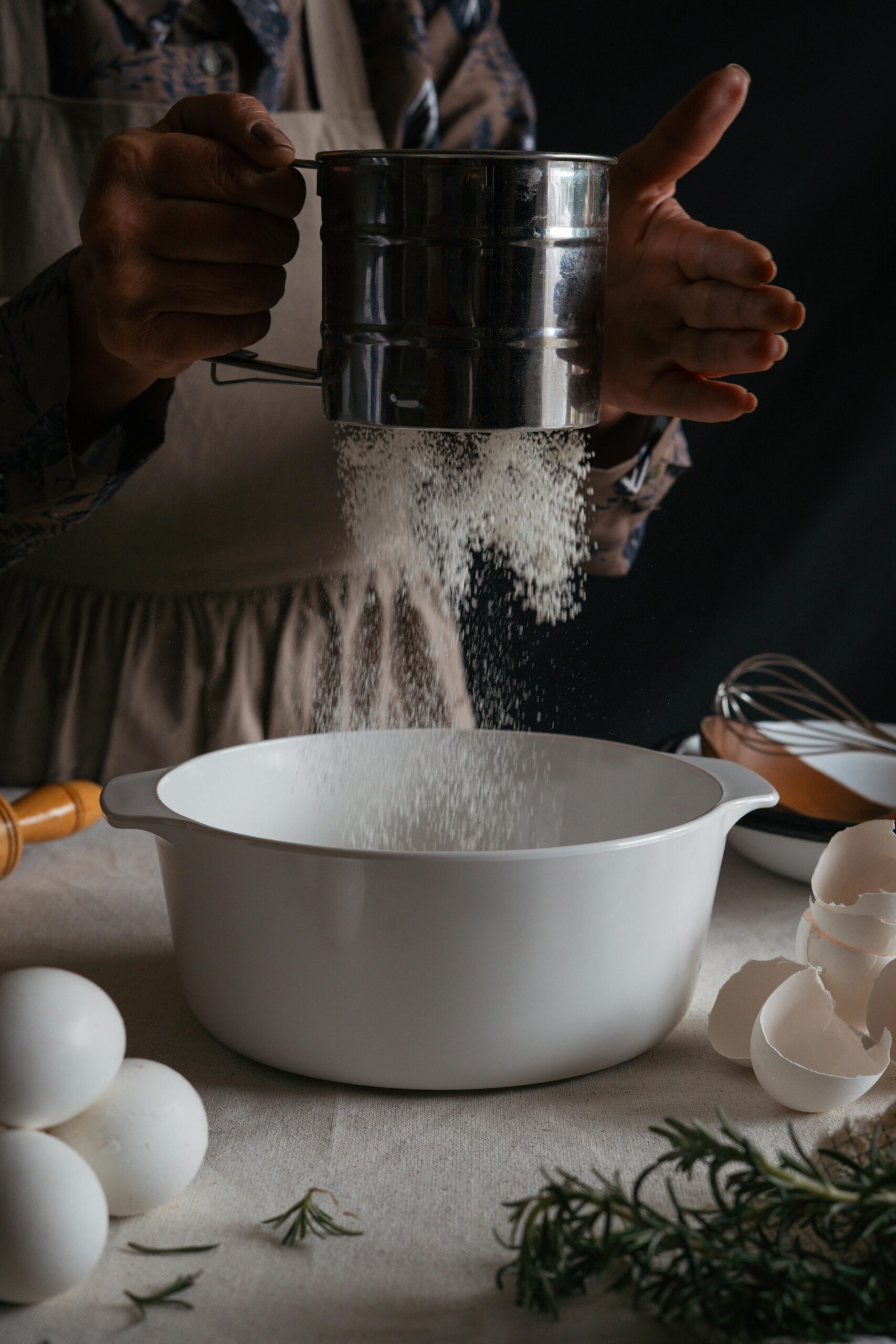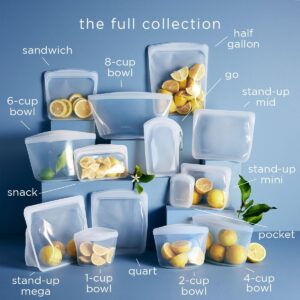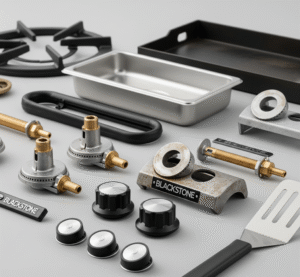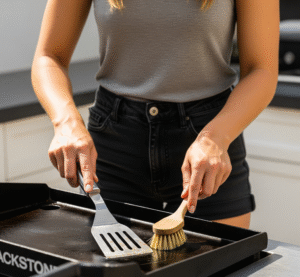I Had No Idea My Baking Tray Was Unhealthy… Until I Read the Label 😨
Aluminum vs Stainless Steel Bakeware
Let me tell you something personal:
I used to bake everything in that shiny aluminum tray I bought on sale. Cookies, veggies, even fish. It was lightweight, heated fast, and never gave me a reason to doubt it.
That is, until one day when I noticed my roasted tomatoes had a weird metallic taste. I thought I was imagining things—until I read about how aluminum can leach into acidic foods.
I was stunned. 😳
I immediately switched to stainless steel bakeware. But that raised a new question…
👉 Aluminum vs Stainless Steel Bakeware – Which is actually better for our health?
If you’re asking the same thing, you’re not alone. In this post, I’m breaking it all down—clearly, honestly, and from a home cook’s perspective. Let’s settle this bakeware battle once and for all. 🍽️
Table of Contents
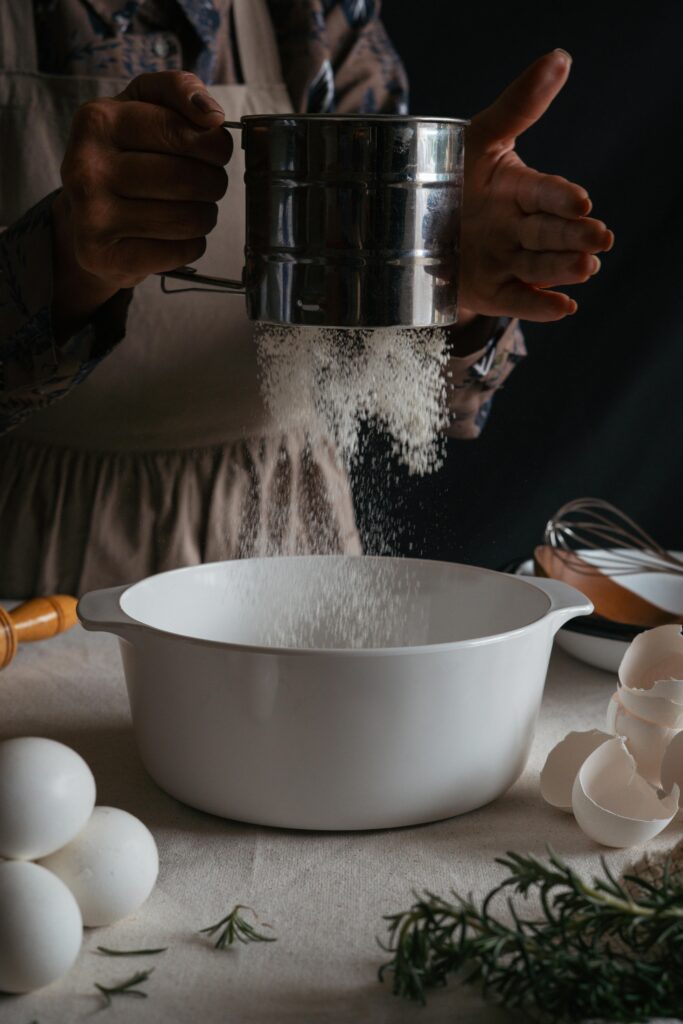
Is Aluminum Bakeware Safe? 5 Truths Every Home Baker Should Know Before Using It Again
🧪 Health Risks – What’s Really Going Into Your Food?
🥄 Aluminum Bakeware – Potential Leaching
Aluminum is a reactive metal. That means it can interact with acidic ingredients like:
- Tomatoes
- Lemon juice
- Vinegar
- Berries
During high-heat cooking, this can cause aluminum ions to leach into your food. While small amounts are considered safe, consistent exposure has raised concerns about long-term health effects, including:
- Possible links to Alzheimer’s (though not conclusively proven)
- Kidney issues in sensitive individuals
- Altered taste in food
🧠 Important Note: Anodized aluminum is far safer (more on that below!).
🔒 Stainless Steel Bakeware – Much Less Reactive
Stainless steel is non-reactive and stable even at high temperatures. It’s made of iron, chromium, and sometimes nickel—but it doesn’t leach like aluminum does.
Health-wise, it’s widely accepted as:
- Non-toxic
- Rust-resistant
- Dishwasher-safe
- Oven-safe up to 500°F or more
💡 Some stainless steel may contain nickel. If you’re allergic, look for nickel-free or 18/0 stainless steel.
✅ Verdict: Stainless steel is the healthier choice overall, especially for regular baking with acidic foods.
🔥 Baking Performance – Which One Wins in the Oven?
| Feature | Aluminum Bakeware | Stainless Steel Bakeware |
|---|---|---|
| Heat Conductivity | Excellent – heats up fast | Moderate – heats slower |
| Weight | Lightweight | Heavier |
| Durability | Can warp easily | Extremely durable |
| Reacts with Food | Yes (especially acidic) | No |
| Dishwasher Safe | Sometimes | Yes (most types) |
👉 If you want quick, even heating, aluminum wins. But for long-term, safe usage, stainless steel takes the crown.
👩🍳 My Experience Using Both in My Kitchen
After years of baking weekly, here’s what I noticed:
- My aluminum tray started warping after 6 months. Roasting veggies was fine, but acidic dishes made it discolored.
- My stainless steel sheet is still going strong after 2+ years. No rust, no dents. It’s heavy but worth it.
So now, I only use aluminum bakeware when I absolutely need lightweight, and I make sure it’s anodized (non-reactive).
🛒 My Recommended Picks (Safe & Trusted)
If you’re upgrading your bakeware, these are my tried-and-tested, safe options:
✅ Best Stainless Steel Baking Sheet
👉 Stainless Steel Cookie Sheet Set – Heavy-duty, rust-proof, and doesn’t warp even at high heat.
✅ Healthier Aluminum Option (Anodized)
👉 Anodized Aluminum Loaf Pans – Safer than regular aluminum and great for cakes or banana bread.
✅ Best for Acidic Recipes
👉 Borosilicate Glass Baking Pan – Use this instead of aluminum when baking with tomatoes or lemon.
💬 Common Questions About This Topic
❓ Is aluminum bakeware banned anywhere?
No. It’s widely used, but health-conscious users are moving toward alternatives like stainless steel, glass, and ceramic.
❓ Can I line my aluminum tray with parchment paper to reduce leaching?
Yes! That’s a smart way to reduce direct contact, especially with acidic ingredients.
❓ How can I tell if my aluminum is anodized?
Anodized bakeware is usually labeled clearly. It has a darker, matte finish and is more scratch-resistant.
🧁 So… Which One Should You Choose?
✅ Choose Stainless Steel if:
- You care about long-term health
- You use acidic ingredients often
- You want rust-proof, warp-resistant bakeware
✅ Choose Anodized Aluminum if:
- You want fast heating and lighter pans
- You avoid acidic foods
- You use parchment or silicone liners regularly
❤️ Final Thoughts – Aluminum vs Stainless Steel Bakeware
So, what’s better for your health?
🎯 Stainless steel bakeware is the clear winner for safety, durability, and peace of mind.
But that doesn’t mean aluminum is bad—just make sure it’s anodized or lined properly.
At the end of the day, baking is about nourishing your family, and that starts with the tools you use.
